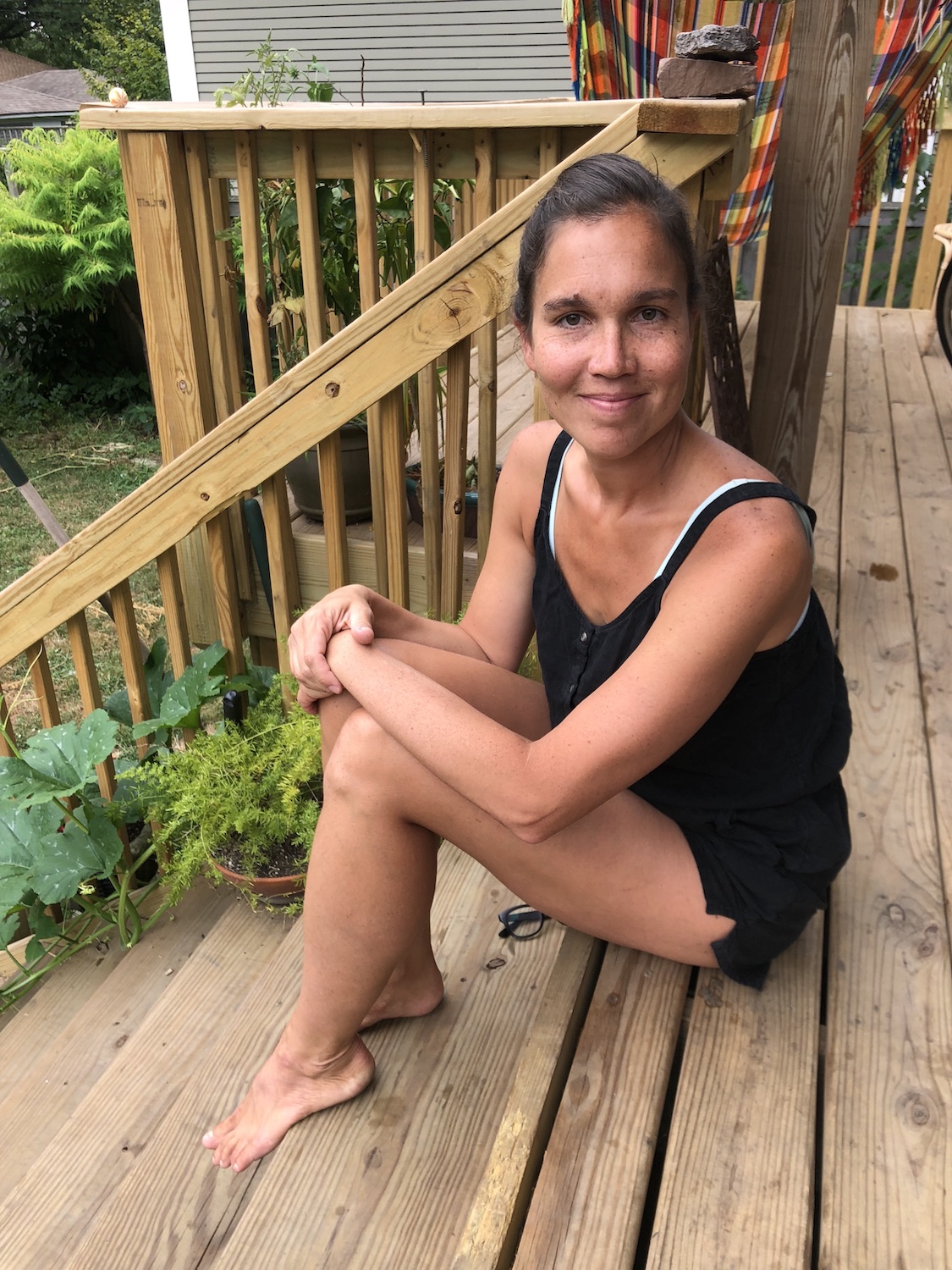Your parents fell in love on the Central American islands, under ceil- ing fans and in rooms with no fans at all. On one strange island, off the unpopular coast of Honduras, the bed was a sagging pit, mysteriously dark in the middle, wetter there. So, they spent their time on the balcony, smoking cigarettes, drinking beer, until they were so tired and drunk that the dank bed and sweaty room, an ocean view in a colonial hotel on an island nobody visited anymore or maybe never had, didn’t matter.
From the beginning, drink was part of the marrow. It was a kind of remembering or way of forgetting.
The first time they had sex—holy, immediate intercourse—was in a hut with no electricity. The walls were bamboo strapped together, and the breeze was whatever could make it through long slatted gaps after floating over sand from the sea. The porter was bringing their backpacks to the thatched bungalow—if you could call the barefoot son, or perhaps grandson or nephew, a porter—when they were making the first real attempt. The fellow opened the door, afternoon light spilling in and joining lines of yellow on the floor; dropped the bags; and closed it again. Could he see within the shadowy space?
Islands, how many? It was such a short time, weeks really, but each day was more than a day.
On his twenty-third birthday, he decided he would swim from the island, the ugly volcanic one, known by two different names, to the mainland, visible across a black channel. But they drank yellow beers with luring men in the dim bar beside the warm pool instead, and he never began to swim. It would have been dangerous anyhow. They said there were sharks.
There were turtles, sea turtles, huge and bloody, spread along sand on the Big Corn Island. People surged, staring. No tourists there either. The crowd was excited about the carcasses, and there was nothing to be said for the lives of the giant creatures. Blood, thinned by water and mixed with shells and grit, slipped from the still-wet bodies toward the lapping shore.
On the other Corn Island, the little one, they ate lobster the hotel owner caught in a dinghy each afternoon, cooked over an open fire, with beans and rice. They explored the piece of land on foot, first tracing the edge of the surf, climbing over palm branches and ocean detritus, until they came to a small hostel, a magical place with subterranean rooms covered in grass. Surfboards stood as lookouts on the shore. From there, they chose a trail back through the center of the island’s thick sandy jungle. As they walked, passing chickens, bungalows on stilts and a tiny shop with meager foodstuffs on the shelves, mosquitoes feasted on her back and legs.
You probably don’t want to know about the first time your parents had sex or the fact that they drank a lot of beer or rum and Coke, Cuba Libres, while falling in love. It’s kind of gross. But it’s oddity that unites experience. Before you, there were two people wearing faded bathing suits, walking down hot strips of beachside road in Panama.
At Bocas del Toro, after a boat trip and a long taxi ride from the border with a driver who pointed out the windows describing the “osos, tigres and leonas,” they listened to angry parents lacerating their child over dinner at an outdoor restaurant. The embarrassed adults did not appear to want the child on vacation; to your parents it seemed they didn’t want the child at all. There they were, in paradise, the Caribbean tropics, far from home, being cruel. The child would probably have preferred to be at his grandmother’s house in the Netherlands or Austria. So, your parents looked away, pretending they didn’t notice as they nursed pale, sweating pilsners, hoping it would not rain the next day and thinking about how they would never be like that. They, if so blessed, would be happy to be with their child.
It was on another island you’ve never heard of, Utila, though you’ve probably never heard of any of these, since they’re not what you’re picturing when you imagine the Caribbean, that they first talked about chil- dren. They’d headed inland, down an unlit dirt road, to the island’s only pizza place, a slab of concrete canopied in huge, flat leaves, for dinner. They were sunburned and early in love when he said, “I’ve been with other girls who would be good wives, but you’d make a good mother.”
I know. I’m sorry it’s so cheesy. But that’s the first time you were discussed. Not to mention, sexist. It’s somehow sexist, though it would take a while to figure out exactly how. But this is the stuff marriages are made of—mushy lines shared over homemade brick oven pizza on lesser-visited, tropical islands. Then you decide to keep staying with the person though life changes, becoming predictable, and you get old.
Do you want to know these memories, or should I take them with me to the grave so we don’t have to remember? I will say there was a lot of infatuation, what many call love, to start off, and it was mutual in its surprising unexpectedness. I guess that should make you happy, but is any relationship different? This is every relationship.
She, your mother, recently asked if he remembered the empty house on the beach. She thought it was a made-up history, from a movie or book. But he surprised her, he of business suits and bank accounts, by saying he remembered too. They’d taken a walk on the beach after finding a room at a hostel, the same beach where days later they would come upon turtles, and come to a huge, old wooden house jutting onto the rocky shore, much closer to the ocean than any of the shacks nearby. Almost too close, it seemed. It was in their path as they walked along the evening beach, the building somehow resting above the place where sand met sea. The doors were either open or unlocked, so they entered. Inside it was dark, as every place outside the sun is, but soon their eyes adjusted. The spacious expanse was lit by late sun coming in huge windows open onto the ocean. Everything had been left beautiful, though messy. It was unclear when or how it had been left, or whether it was a house or a hotel. Would someone be returning at any moment or had the place been abandoned years ago? Were they welcome? Any possibility seemed plausible.
Someday you’ll have your own stories. Maybe you won’t marry, but you will almost certainly fall in love if you haven’t already, and you’ll remember in this same dark fog. There may be dingy rooms and strangers opening doors. There may not be dead sea creatures, but there will be conversations that make your heart drop. Then you’ll decide if you want to create some timeless thing out of the sweat, beer, saliva and seawater. It won’t seem as disturbing when it’s you. There you’ll be, lying under a ceiling fan in a room, windows flung open, mosquito bites and sunburnt chest, trying to decide what’s real and what lasts. Or maybe there will be no ceiling fan or air conditioner, just the chill of a northern night sky in the woods.


